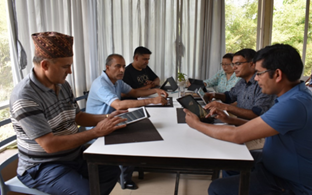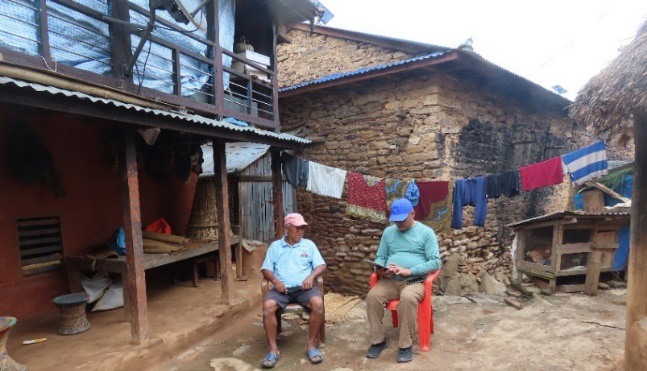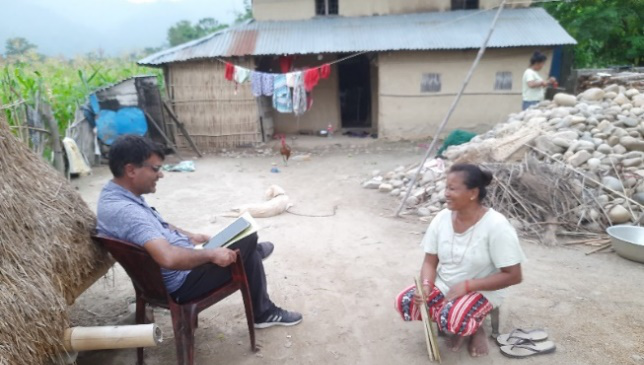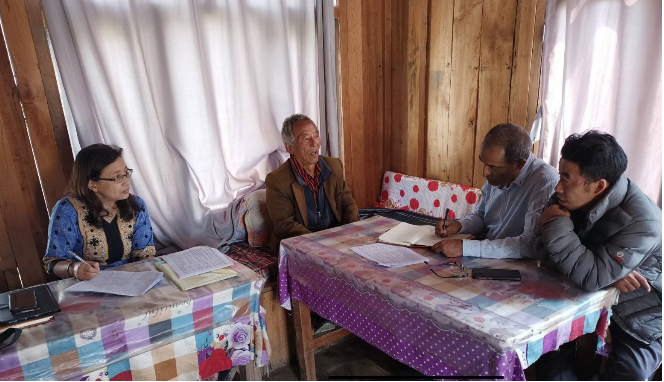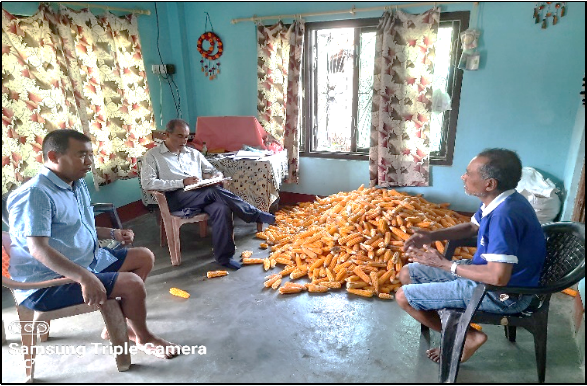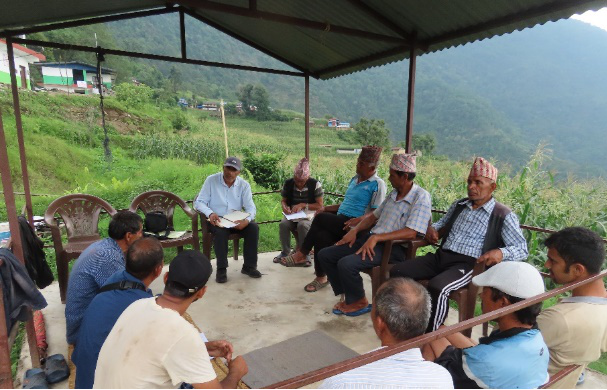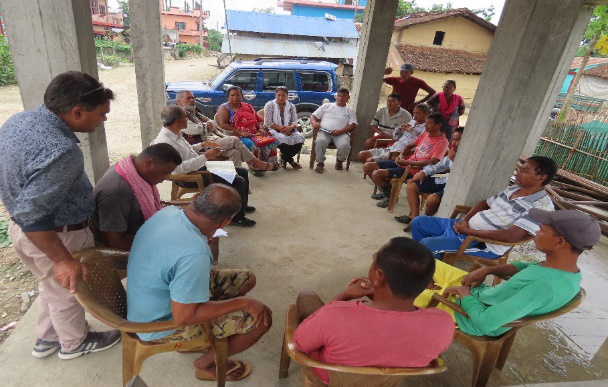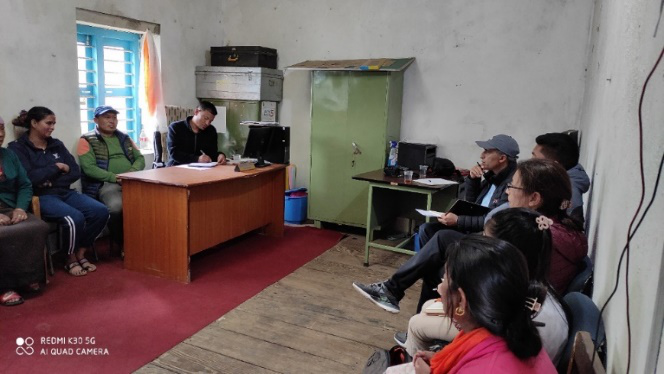ANSO funded collaborative research entitled' “Assessing Households” Adaptive Capacity to Climate Change in the Diverse Socio-Cultural and Geographical Landscape of South Asia” led by Prof. Prem S. Chapagain of Central Department of Geography, Tribhuvan University, Nepal has completed fieldwork in Nepal from May 25 to June 23, 2022. The project collaborators are from the universities from China, Nepal, India and Bangladesh.
The five-member fieldwork team including CoIs Dr. Shobha Shrestha, Dr. Basanta Poudel and two field surveyors, conducted household survey, Key Informant Interview (KII), Focus Group Discussion (FGD), prepared community profile, inventory of hazards and loss and damages by hazard type. As the research outcome aims at to bring the regional synthesis, field survey was carried out covering different settlements in Mountain, Hill, and Tarai ecological regions of Nepal.
The survey questionnaire was developed and finalized after various round of extensive discussion and updates among collaborators. Mobile application for household questionnaire was developed based on finalized questionnaire. Thereafter, the field surveyors were trained (Fig. 1) and the apps was pre-tested in the field at household level.
Fig. 1: Orientation training to field surveyors (left), and pre-testing of the questionnaire using mobile based survey tool (right).
Field survey was conducted in the five districts. A total of 210 household questionnaire survey was designed covering various settlements within the Gandaki River Basin (GRB) (Fig. 2). Household questionnaire survey (HQS) consisted of questionnaire related to various dimensions and indicators of adaptive capacity, climate change sensitivity and exposure.
Fig. 2: Household questionnaire survey at different villages using mobile survey tool
In addition to household questionnaire survey, two KII in each ecological region was carried out (Fig. 3). The KII was carried out with senior citizens (farmers), who have knowledge about local environment, climate change and agriculture and livelihood activities.
Fig.3: KII at different villages of GRB
Similarly, FGD was also conducted in each region (Fig. 4). Local farmers, social workers, members of CBOs/NGOs, school teachers, women, representative of the local government were participated and discussed on various issues such as climate change scenario at the village, socio-economic status, farming and its major constraints, livelihood of the farmers, climate change impact on their livelihood and adaption strategies. Local peoples were enthusiastically participated and discussed in the meeting.
Fig. 4: FGD at different villages of GRB
The field work team also had meetings with local government. The meeting was focused on the major opportunities and challenges of climate change on farming, climate change policy and its implementation at local level, the ongoing initiatives, programs and future planning of the local government on climate change related issues and constraints to combat climate change impact and efforts to enhance the adaption strategies (Fig. 6).
Fig. 5: Meeting with local government in different villages.
Beside household questionnaire survey, KII, FGD and briefing and consultation meetings, the survey team also prepared community profile and natural hazard inventory of the last 10 years of the surveyed villages including loss and damages - human and livestock death, injuries, loss of land and other properties. The information was collected from senior people who have been living in the village for long time and also experienced hazard and disaster. This information was recorded using standard check list.
The fieldwork in Nepal was completed very successfully. It was carried out just before the monsoon season and thus farmers also gave time for the survey. In addition to farmers, the local government authorities also supported and facilitated the field work. Finally, the research team completed 210 household survey, 6 KIIs and 3 FGDs covering three ecological regions of Nepal within stipulated time period.
The way forward
The project team is further planning to manage the field survey data of Nepal and further aims to develop at least one paper in the future. Importantly, it has also planned to conduct field surveyors' training and meetings with the respective departments' and university authorities in India and Bangladesh by the end of 2022.
Source: Prof. Prem Sagar Chapagain, Central Department of Geography, Tribhuvan University

